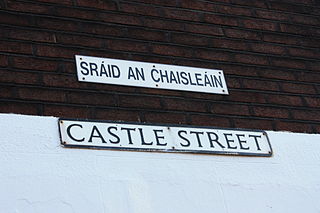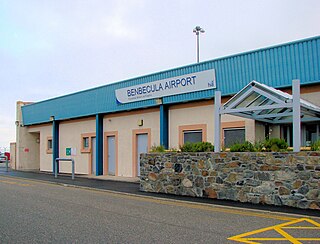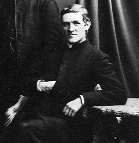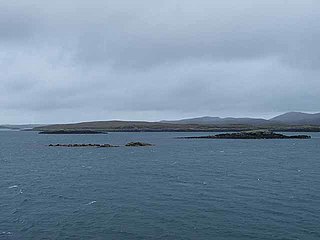Related Research Articles

Beltane or Bealtaine is the Gaelic May Day festival, marking the beginning of summer. It is traditionally held on 1st May, or about midway between the spring equinox and summer solstice. Historically, it was widely observed in Ireland, Scotland, and the Isle of Man. In Irish the name for the festival day is Lá Bealtaine while the month of May is Mí na Bealtaine, in Scottish Gaelic Latha Bealltainn, and in Manx Gaelic Laa Boaltinn/Boaldyn. Beltane is one of the four main Gaelic seasonal festivals—along with Samhain, Imbolc, and Lughnasadh—and is similar to the Welsh Calan Mai.

North Uist is an island and community in the Outer Hebrides of Scotland.

South Uist is the second-largest island of the Outer Hebrides in Scotland. At the 2011 census, it had a usually resident population of 1,754: a decrease of 64 since 2001. The island, in common with the rest of the Hebrides, is one of the last remaining strongholds of the Gaelic language in Scotland. South Uist's inhabitants are known in Gaelic as Deasaich (Southerners). The population is about 90% Roman Catholic.

Benbecula is an island of the Outer Hebrides in the Atlantic Ocean off the west coast of Scotland. In the 2011 census, it had a resident population of 1,283 with a sizable percentage of Roman Catholics. It is in a zone administered by Comhairle nan Eilean Siar or the Western Isles Council. The island is about 12 kilometres from west to east and a similar distance from north to south. It lies between the islands of North Uist and South Uist and is connected to both by road causeways. Benbecula's main settlement and administrative centre is Balivanich.
Eriskay, from the Old Norse for "Eric's Isle", is an island and community council area of the Outer Hebrides in northern Scotland with a population of 143, as of the 2011 census. It lies between South Uist and Barra and is connected to South Uist by a causeway which was opened in 2001. In the same year Ceann a' Ghàraidh in Eriskay became the ferry terminal for travelling between South Uist and Barra. The Caledonian MacBrayne vehicular ferry travels between Eriskay and Ardmore in Barra. The crossing takes around 40 minutes.
Berneray is an island and community in the Sound of Harris, Scotland. It is one of fifteen inhabited islands in the Outer Hebrides. It is famed for its rich and colourful history which has attracted much tourism. It lies within the South Lewis, Harris and North Uist National Scenic Area, one of 40 such areas in Scotland which are defined so as to identify areas of exceptional scenery and to ensure its protection from inappropriate development.

Mary Jane Lamond is a Canadian Celtic folk musician who performs traditional Canadian Gaelic folk songs from Cape Breton Island. Her music combines traditional and contemporary material. Lamond is known as the vocalist on Ashley MacIsaac's 1995 hit single "Sleepy Maggie", and for her solo Top 40 hit "Horo Ghoid thu Nighean", the first single from her 1997 album Suas e!. Her 2012 collaboration with fiddler Wendy MacIsaac, Seinn, was named one of the top 10 folk and americana albums of 2012 by National Public Radio in the United States.

Irish, like all modern Celtic languages, is characterized by its initial consonant mutations. These mutations affect the initial consonant of a word under specific morphological and syntactic conditions. The mutations are an important tool in understanding the relationship between two words and can differentiate various meanings.

Benbecula Airport is located on the island of Benbecula in the Outer Hebrides, off the West Coast of Scotland. It is a small rural airport owned and maintained by Highlands and Islands Airports Limited.

Julie Fowlis is a Scottish folk singer and multi-instrumentalist who sings primarily in Scottish Gaelic.
A Pretty Girl Milking Her Cow is a traditional 18th-century Irish ballad. The English version is attributed to Thomas Moore (1779–1852). Originally sung in Irish Gaelic, the song was popular through the early 20th century.

Ùr-sgeul was an independent publisher of new Scottish Gaelic prose. The name Ùr-sgeul is a Gaelic word which translates variously as: a romance, a novel or a recent tale. Professor Alan Riach, in Scottish Literature: An introduction, summarises the Ùr-Sgeul publishing initiative as "devoted to prose fiction and developing an increasingly impressive list of new titles: short stories and anthologies but mainly single-author novels."
Dòmhnall Ruadh Chorùna, legally Donald MacDonald or Dòmhnall MacDhòmhnaill, was a Scottish Gaelic Bard, North Uist stonemason, and veteran of the First World War. Literary historian Ronald Black has called Dòmhnall Ruadh, "The Voice of the Trenches."
Norman Hector Mackinnon Maclean was a Scottish Gaelic comedian, novelist, poet, musician and broadcaster. He is the only person to have won both Bardic Crown and Gold Medal at the same Royal National Mòd. His struggles with alcoholism are documented in his autobiography, The Leper's Bell: Autobiography of a Changeling.

The Reverend Allan MacDonald was a Scottish Roman Catholic priest during the Victorian era. During the later phases of the Highland Clearances, Fr. MacDonald was also an activist for the reform of the absolute power granted to Anglo-Scottish landlords to both rackrent and evict their tenants en masse and at will under Scots property law. Furthermore, Father Allan MacDonald was a radically innovative poet with a permanent place in the literary canon of Scottish Gaelic literature and a nationally respected folklorist and collector from the oral tradition in the Scottish Highlands and Islands.
Tàladh Chrìosda is the popular name for the Scottish Gaelic Christmas carol Tàladh ar Slànaigheir. It is traditionally sung at Midnight Mass in the Outer Hebrides in Scotland. The 29 verses of the hymn date from the 19th century and are intended to represent a lullaby for the Christ Child by the Blessed Virgin.

Flodday is an uninhabited island in Loch Maddy, North Uist in the Outer Hebrides of Scotland.
Iain Mac Fhearchair (1693-–1779) was a Scottish Gaelic-speaking Bard and seanchaidh "who lived and died in the island of North Uist." Later in his life, Iain served as Chief Bard to the Chief of Clan MacDonald of Sleat.

Margaret Fay Shaw was a pioneering Scottish-American ethnomusicologist, photographer, folklorist, and scholar of Celtic studies. She is best known for her meticulous work as a folk song and folklore collector among Scottish Gaelic-speakers in the Hebrides, Canadian Gaelic-speaking communities in Nova Scotia, and among Connaught Irish speakers in the Aran Islands.
References
- ↑ Kennedy-Fraser, Marjory (1909). Songs of the Hebrides: collected and arranged for voice and pianoforte, with Gaelic and English words. Boosey. p. 70,74.